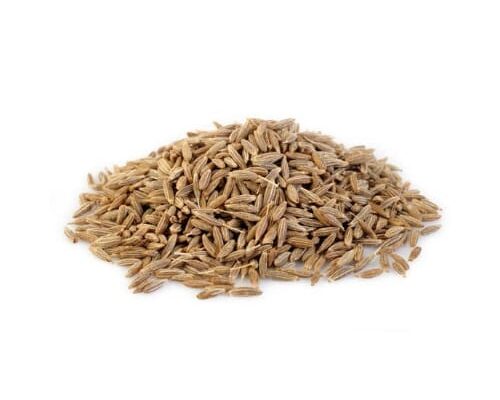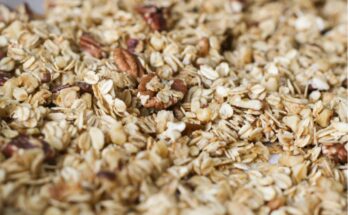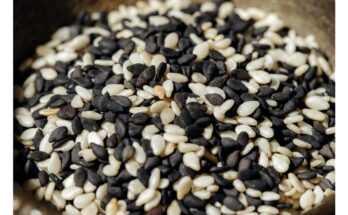Cumin (Cuminum cyminum) produces aromatic, seed-like fruits, commonly called ‘cumin seeds.’ These small, oval-shaped seeds are about 6 mm in length and have a light yellowish-brown color. They possess a strong, distinctive fragrance and a warm, slightly bitter taste, attributed to the volatile oil they contain.
Cumin fruits are a rich source of thymol, which is widely used as an anthelmintic to treat hookworm infections and as an antiseptic. It is a key ingredient in many commercial preparations and acts as a stimulant. Thymol helps increase urine secretion, alleviates flatulence, strengthens the stomach, and can stop bleeding.
Cumin seeds are highly effective in treating various digestive disorders, such as biliousness, morning sickness, indigestion, atonic dyspepsia, and diarrhea caused by malabsorption. To prepare a remedy for these issues, boil one teaspoon of cumin seeds in a glass of water, mix the infusion with a teaspoon of fresh coriander juice and a pinch of salt, and consume this mixture twice daily after meals.
For conditions like morning sickness, jaundice, nausea, vomiting, and dizziness caused by bile disorders, half a teaspoon of powdered cumin seeds mixed with tamarind pulp and honey serves as an excellent remedy. This mixture should be licked before breakfast. Chewing cumin seeds 30 minutes before meals stimulates appetite and aids digestion, while chewing them after meals helps prevent dental issues, indigestion, food fermentation in the intestines, and constipation.
Cumin water, which is the byproduct of steam distillation after extracting the essential oil and thymol, is commonly used in India as a carminative. It is especially useful for treating flatulence and colic in children.
Cumin seeds are widely used in spice blends and for flavoring curries, soups, sausages, bread, and cakes. They are an essential component of curry powder, pickles, and chutneys and are also utilized in traditional Indian medicine.
Cumin oil is frequently used in flavoring preparations, especially in curries and culinary dishes, and has medicinal value as a carminative.
Nutritive value per 100 g of Cumin Seeds:
Energy (kcal) : 356
Protein (g) : 18.7
Fat (g) : 15.0
Carbohydrates (g) : 36.6
Crude Fibre (g) : 12.0
Minerals (g) : 5.8
Calcium (mg) : 1080
Phosphorus (mg) : 511
Iron (mg) : 11.7
Magnesium (mg) : 475
Sodium (mg) : 126
Potassium (mg) : 980
Vitamins:
Carotene (µg) : 522
Thiamine (mg) : 0.55
Riboflavin (mg) : 0.36
Niacin (mg) : 2.6
Vitamin C (mg) : 3.0
Choline (mg) : 1065




